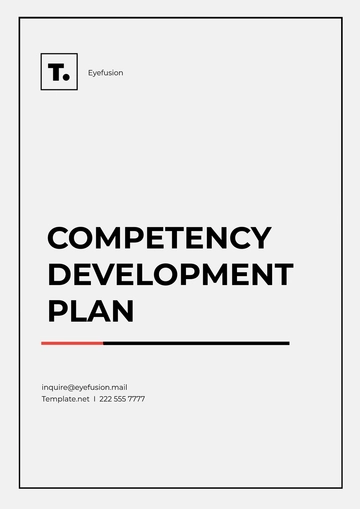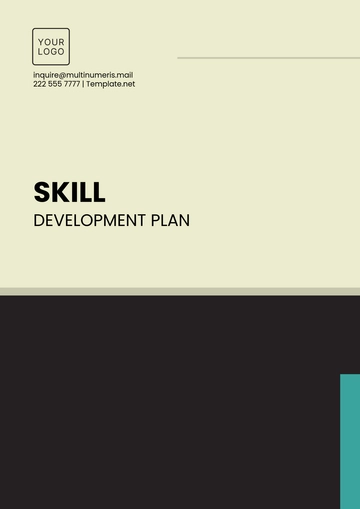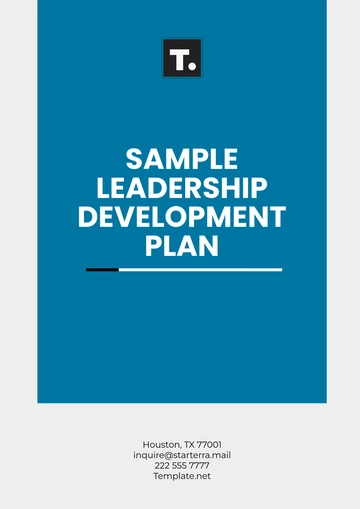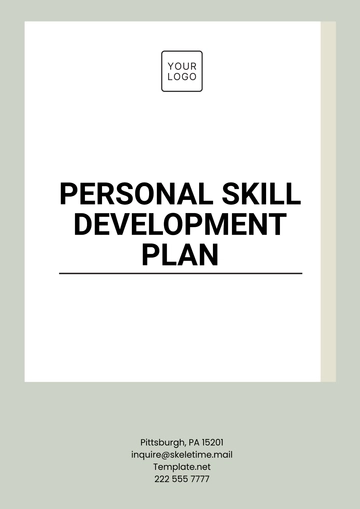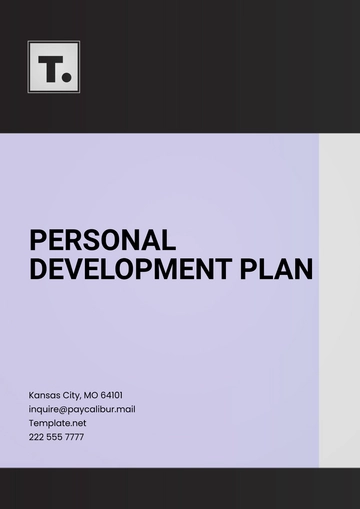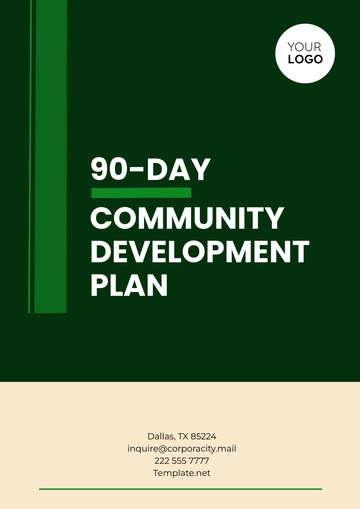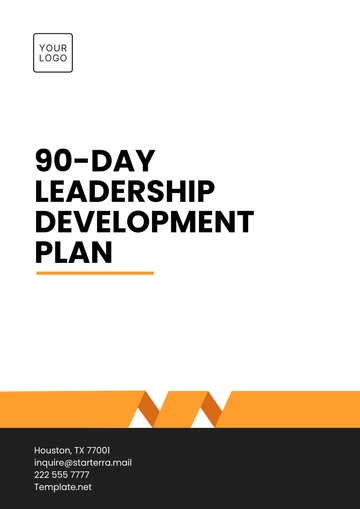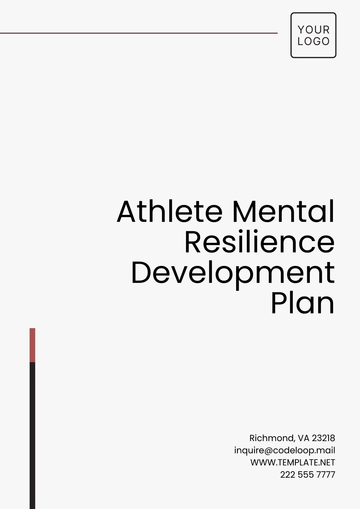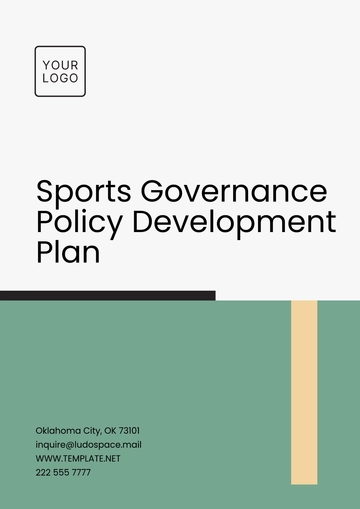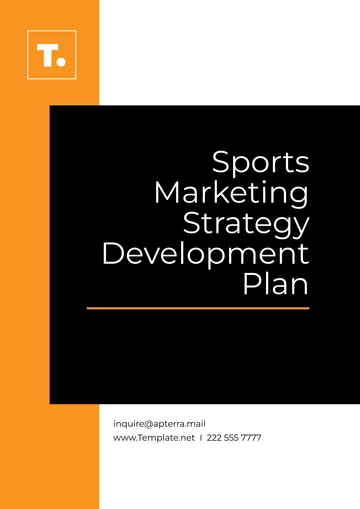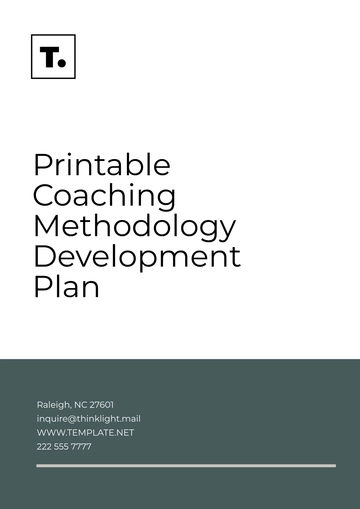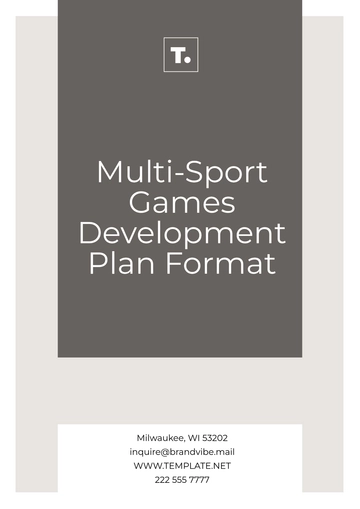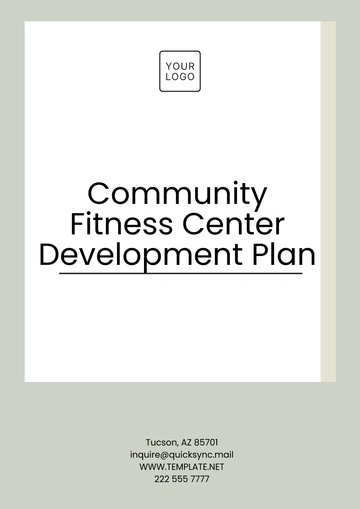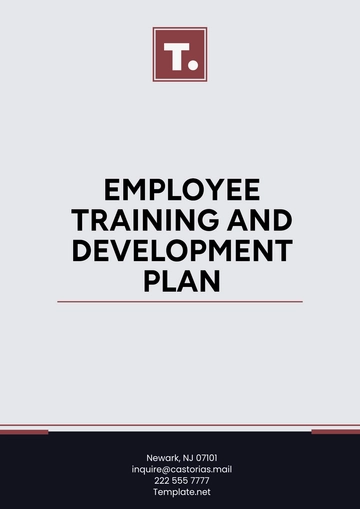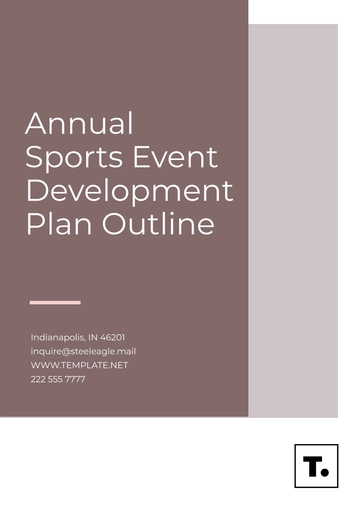Free Football Player Development Plan
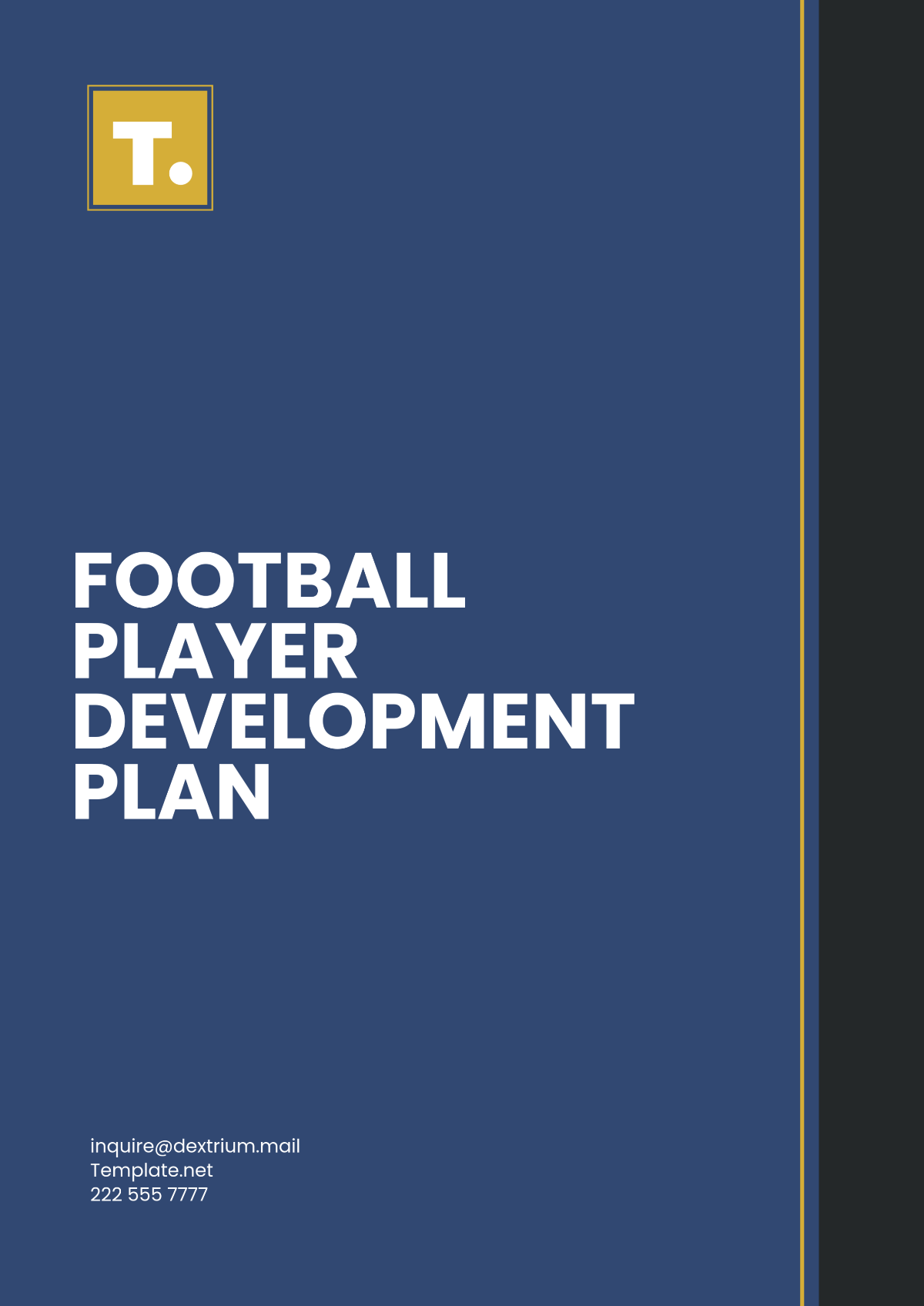
Written By: [Your Name]
I. Executive Summary
Overview
The objective of this Football Player Development Plan is to provide a structured roadmap for enhancing the skills, performance, and overall development of Maxwell Mante. This document outlines the goals, strategies, and evaluation methods required to achieve significant progress by the year 2050 and beyond.
Contact Information
Information | Details |
|---|---|
Address | [Your Company Address] |
Phone Number | [Your Company Number] |
[Your Company Email] |
II. Player Profile
Personal Information:
Player Name: Maxwell Mante
Age: 22
Position: Midfielder
Physical Attributes:
Height: 6 feet 1 inch
Weight: 175 lbs
Physical Condition: Possesses excellent overall fitness, with a strong build and good endurance.
Playing History:
Current Team: Manchester United FC (Premier League)
Previous Teams:
Youth Academy, Manchester United FC
A loan spell at Championship club, Leeds United FC
Notable Achievements:
Named Best Young Player of the Year in Manchester United's youth academy.
Played a crucial role in Leeds United's promotion campaign during his loan spell.
III. Development Goals
Short-Term Goals (Within 1 Year)
1. Improve passing accuracy by 15%.
2. Increase stamina to consistently complete 90 minutes of play.
3. Enhance tactical awareness during defensive plays.
Mid-Term Goals (1-3 Years)
1. Achieve a starting position in more than 70% of games.
2. Master advanced dribbling techniques.
3. Improve communication and leadership in the field.
Long-Term Goals (3-5 Years)
1. Become a key player in a top-tier team.
2. Win major tournaments and accolades, including MVP awards.
3. Develop brand partnerships and increase personal marketability.
IV. Training Plan
Physical Conditioning
Weekly Training Schedule
Day | Training Focus |
|---|---|
Monday | Strength training focusing on lower body |
Tuesday | High-intensity interval training (HIIT) for cardiovascular endurance |
Wednesday | Rest day with light stretching and mobility work |
Thursday | Upper body strength training and agility drills |
Friday | Team practice focusing on tactics and gameplay |
Saturday | Endurance run or cycling for aerobic fitness |
Sunday | Rest day for recovery |
Strength Training Sessions
Muscle | Exercises | Sets and Reps |
|---|---|---|
Lower Body | Squats, lunges, deadlifts, calf raises | 3 sets of 8-12 reps |
Upper Body | Bench presses, pull-ups, shoulder presses, rows | 3 sets of 8-12 reps |
Core | Planks, Russian twists, leg raises | 3 sets of 12-15 reps |
Technical Skills
Dribbling Drills:
Cone dribbling: Set up cones in a zig-zag pattern and dribble through them at high speed, focusing on close ball control.
1v1 dribbling: Practice dribbling past a defender in a confined space, emphasizing quick changes of direction and feints.
Speed dribbling: Sprint with the ball at your feet over short distances, working on maintaining control at high speed.
Passing Drills:
Short passing: Partner passing drills focusing on accuracy and timing over short distances.
Long passing: Practicing long-range passes to switch play or find teammates behind the defense.
Combination passing: Incorporate one-touch passing and give-and-go movements to enhance teamwork and quick transitions.
Mental Conditioning
Visualization Techniques:
Visualization of match scenarios: Imagine yourself successfully executing key plays such as scoring a goal or making a crucial interception during a match.
Positive affirmations: Repeat affirmations related to confidence, focus, and determination to reinforce a winning mindset.
Situational Awareness Training:
Video analysis: Review footage of past matches to analyze positioning, decision-making, and opportunities for improvement.
Tactical discussions: Engage in discussions with coaches and teammates to understand different game strategies and positional responsibilities.
V. Evaluation and Feedback
Performance Assessment
Monthly Performance Reviews:
Conducted by coaching staff and team management to assess progress toward goals outlined in the development plan.
Evaluation criteria include technical skills, tactical understanding, physical fitness, and attitude on and off the field.
Feedback sessions provide opportunities for constructive criticism and goal-setting for the upcoming month.
Quarterly Skill Assessments:
Comprehensive evaluations of specific skills such as passing accuracy, dribbling proficiency, defensive awareness, and overall performance.
Assessments may include drills, match simulations, and game analysis to gauge improvement over time.
Results are used to identify areas of strength and weakness for targeted training interventions.
Feedback Mechanism
Coach's Feedback:
Regular one-on-one meetings between the player and coaching staff to discuss performance, areas for improvement, and goal-setting.
Coaches provide specific feedback on technical skills, tactical understanding, physical conditioning, and mental approach to the game.
Feedback is tailored to the player's development plan and aligned with short-term, mid-term, and long-term goals.
Peer Feedback:
Encouraged during team training sessions and match play to promote a culture of accountability and improvement within the squad.
Players provide constructive feedback to teammates on their performance, communication, teamwork, and leadership.
Peer evaluations foster camaraderie and mutual support while reinforcing the importance of teamwork and collaboration.
Self-Assessment:
Players are encouraged to reflect on their own performance and identify areas for improvement independently.
Self-assessment tools such as performance journals, video analysis, and goal-setting exercises are utilized to facilitate self-reflection.
Players set personal goals based on their self-assessment and track progress over time, adjusting their development plan as needed.
VI. Professional Development
Education and Certifications
Relevant Courses:
Advanced Tactics and Strategy: Enroll in courses or workshops focused on advanced football tactics, including formations, set plays, and positional play.
Sports Nutrition and Fitness: Gain knowledge in sports nutrition and fitness to optimize physical performance and recovery.
Sports Psychology: Study sports psychology to enhance mental resilience, focus, and confidence on and off the field.
Certifications to be Acquired:
Coaching Licenses: Pursue coaching certifications to develop leadership skills and gain a deeper understanding of the game.
First Aid and CPR Certification: Obtain certifications in first aid and CPR to ensure the ability to provide immediate medical assistance in emergencies.
Sports Management: Explore certifications in sports management to understand the business side of professional football and enhance career opportunities post-retirement.
Networking and Exposure
Participation in Competitions:
National and International Tournaments: Compete in prestigious tournaments at the national and international levels to showcase skills and gain exposure.
All-Star Games and Showcases: Participate in all-star games and showcases to compete against top talent and attract the attention of scouts and recruiters.
Pre-season Tours and Friendlies: Join pre-season tours and friendlies with top clubs to gain experience against high-level competition and expand professional networks.
Community Engagements:
Youth Development Programs: Volunteer or participate in youth development programs to give back to the community and inspire the next generation of football players.
Charity Events and Fundraisers: Get involved in charity events and fundraisers to support worthy causes and build a positive public image.
Public Speaking Engagements: Utilize public speaking opportunities to share experiences, insights, and advice with fans, aspiring players, and the broader community.
VII. Conclusion
This Football Player Development Plan is designed to ensure that Maxwell Mante achieves their highest potential and reaches their career goals by 2050 and beyond. With a structured approach and continuous improvement, success is within reach.
- 100% Customizable, free editor
- Access 1 Million+ Templates, photo’s & graphics
- Download or share as a template
- Click and replace photos, graphics, text, backgrounds
- Resize, crop, AI write & more
- Access advanced editor
Enhance athletic performance with the Football Player Development Plan Template from Template.net. This customizable, downloadable, and printable template provides a comprehensive framework for developing football skills. With editable features in our AI Editor Tool, tailor the plan to your specific needs. Streamline your training efforts and ensure success with this invaluable resource.
